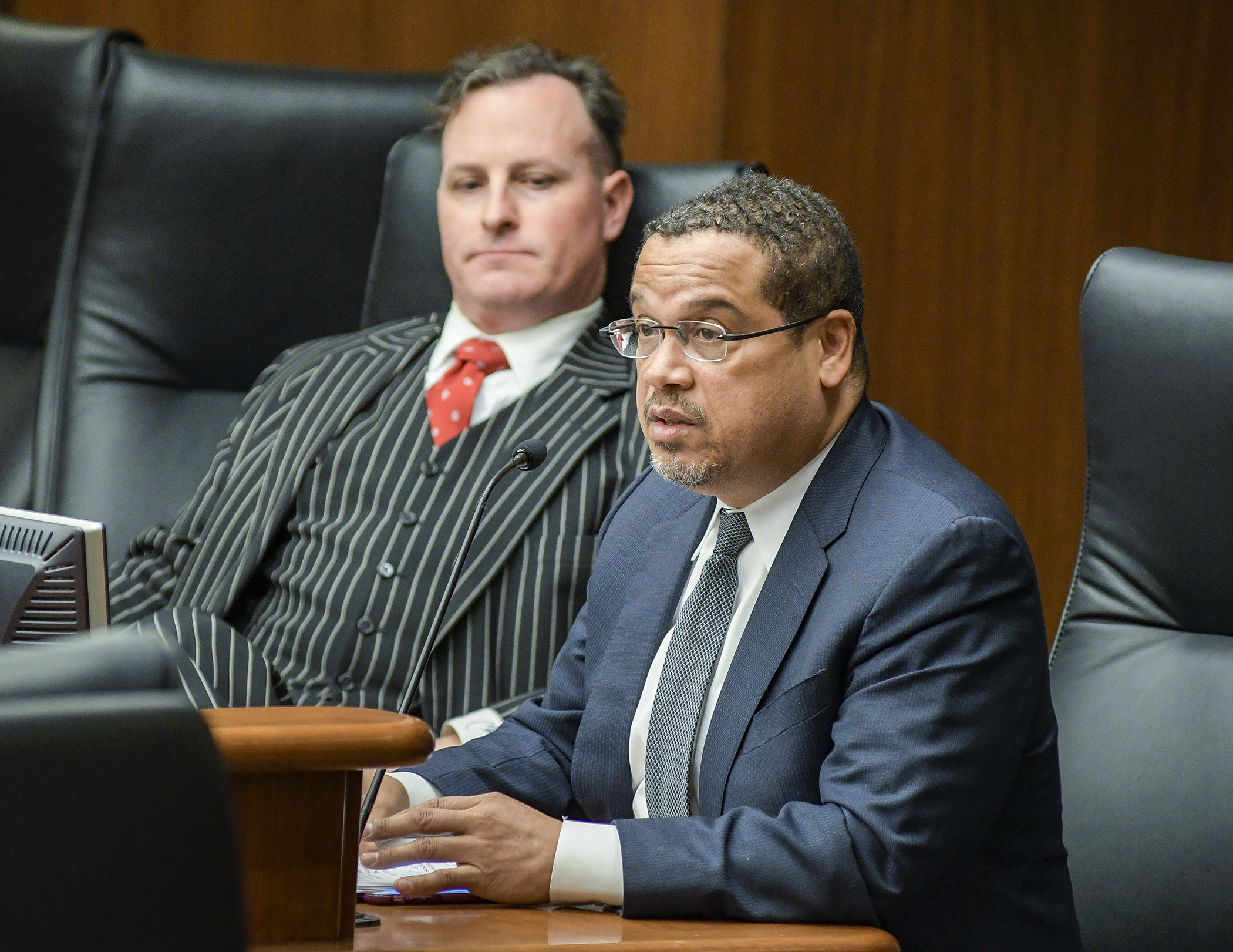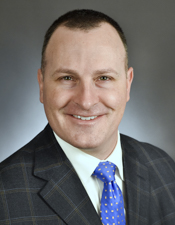Drug cost hikes could be subject to attorney general's review

Dramatic and seemingly inexplicable increases in drug costs can compel people to risk their own lives by rationing much-needed medication, or else force families to choose between treating chronic conditions and keeping a roof overhead.
Rep. John Lesch (DFL-St. Paul) is sponsoring a bill intended to stop price gouging that can prevent people from getting the medications they need.
HF4 was approved, as amended, on a party-line vote Tuesday by the House Health and Human Services Policy Committee and sent to the House Commerce Committee. There is no Senate companion.
“Families simply have been put in untenable financial situations because they cannot afford the drugs that keep them alive,” Attorney General Keith Ellison said, calling it an “essential” tool needed to protect Minnesotans.
The bill would require the Department of Human Services to create a list of essential generic or off-patent prescription drugs with wholesale acquisition costs exceeding $80. This would include drugs covered by Medical Assistance, included in the Minnesota Medicare prescription drug plan, or determined to be essential by the department.
If any of these drugs’ costs were to increase more than 15 percent within a single year, that would be reported to the attorney general by the Board of Pharmacy, the department or health plan companies.
The attorney general would then work with the drug manufacturer or distributor to determine whether there is a “legitimate market consideration” to explain the price increase, Ellison said.
Necessary price increases could be caused by materials shortages, the need to invest in manufacturing infrastructure, research and development costs, or incidents that could disrupt the supply chain or manufacturing process, including natural disasters, said Stephen Schondelmeyer, a professor of pharmaceutical economics at the University of Minnesota.
The bill is not intended to unfairly harm pharmaceutical companies, but is meant to prevent unfair cost increases motivated by nothing more than bloated profit margins and greed, Lesch said.
If no reasonable explanation could be identified, the attorney general would have the ability to enforce the bill’s prohibition against “unconscionable” price increases, though a judge or jury could ultimately make the decision about whether the price increase could be considered “conscionable,” Ellison said.
The proposed legislation would also allow for the Board of Pharmacy to take disciplinary actions against manufacturers and wholesale distributors and impose civil penalties up to $25,000 for violations.
Rep. Tony Albright (R-Prior Lake) asked if there was a risk that the legislation would have “a chilling effect” on innovation or discourage pharmacy benefits managers and manufacturers from serving Minnesotans for fear of legal action.
Lesch responded that he “invites the day” a corporation refuses to serve Minnesotans by openly admitting that their prices could be considered unconscionable.
Republican committee members also expressed concern about the bill’s definition of “unconscionable,” saying it is too nebulous and doesn’t provide any meaningful guide for well-intentioned drug manufacturers or distributors.
In addition to ambiguous language, HF4 also fails to account for the speed at which price fluctuations can take pace, the national scale of America’s pharmaceutical market, and the lack of control manufacturers have over the distribution process, said Brett Michelin, director of state government affairs for the Association of Accessible Medicine, a group of generic and biosimilar drug manufacturers.
Research and development costs – which are a valid part of a drug’s expense – also cannot be easily calculated for specific medications, given the nature of the research process, and need to cover the work that didn’t result in specific, marketable products, said Kristina Moorhead, senior director of state advocacy for the Pharmaceutical Research and Manufacturers of America.
Only about 12 percent of drugs ever make it onto the market, she said.
Rep. Tina Liebling (DFL-Rochester) stressed that the committee — being a health committee — should concern itself first and foremost with the health and wellbeing of Minnesotans, leaving deliberations about the bill’s impact on the pharmaceutical industry to committees focused on commerce.
Related Articles
Search Session Daily
Advanced Search OptionsPriority Dailies
Ways and Means Committee OKs proposed $512 million supplemental budget on party-line vote
By Mike Cook Meeting more needs or fiscal irresponsibility is one way to sum up the differences among the two parties on a supplemental spending package a year after a $72 billion state budg...
Meeting more needs or fiscal irresponsibility is one way to sum up the differences among the two parties on a supplemental spending package a year after a $72 billion state budg...
Minnesota’s projected budget surplus balloons to $3.7 billion, but fiscal pressure still looms
By Rob Hubbard Just as Minnesota has experienced a warmer winter than usual, so has the state’s budget outlook warmed over the past few months.
On Thursday, Minnesota Management and Budget...
Just as Minnesota has experienced a warmer winter than usual, so has the state’s budget outlook warmed over the past few months.
On Thursday, Minnesota Management and Budget...
